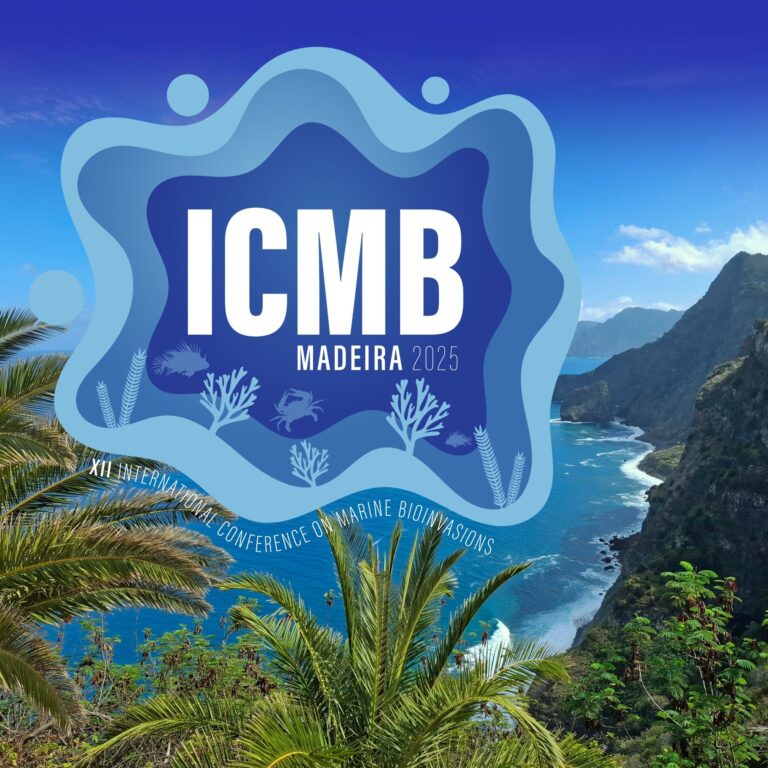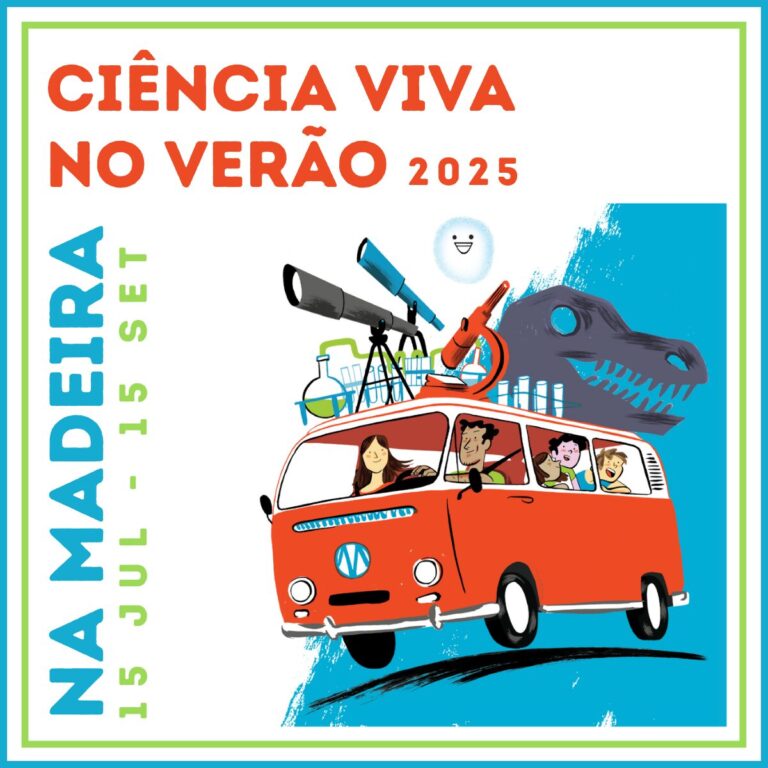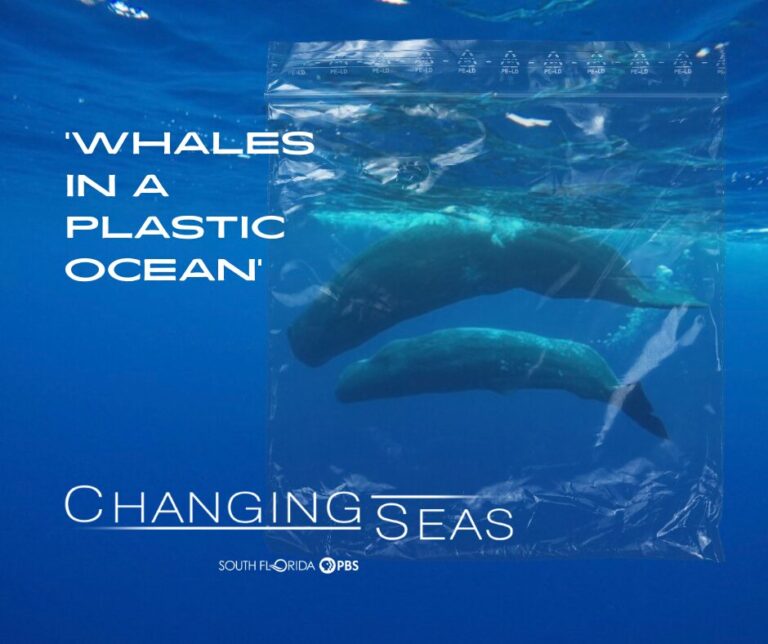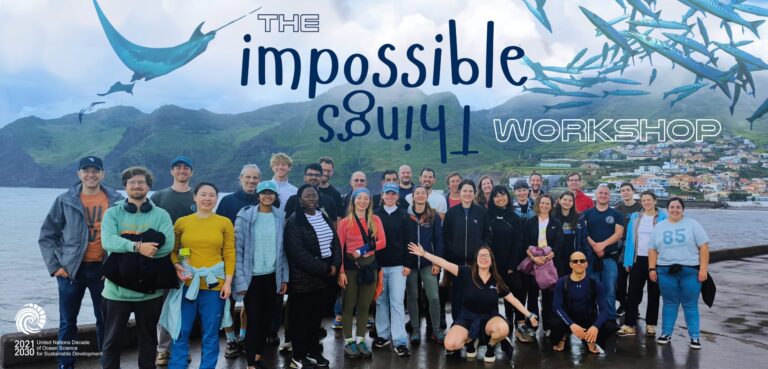Academia Azul: Take One
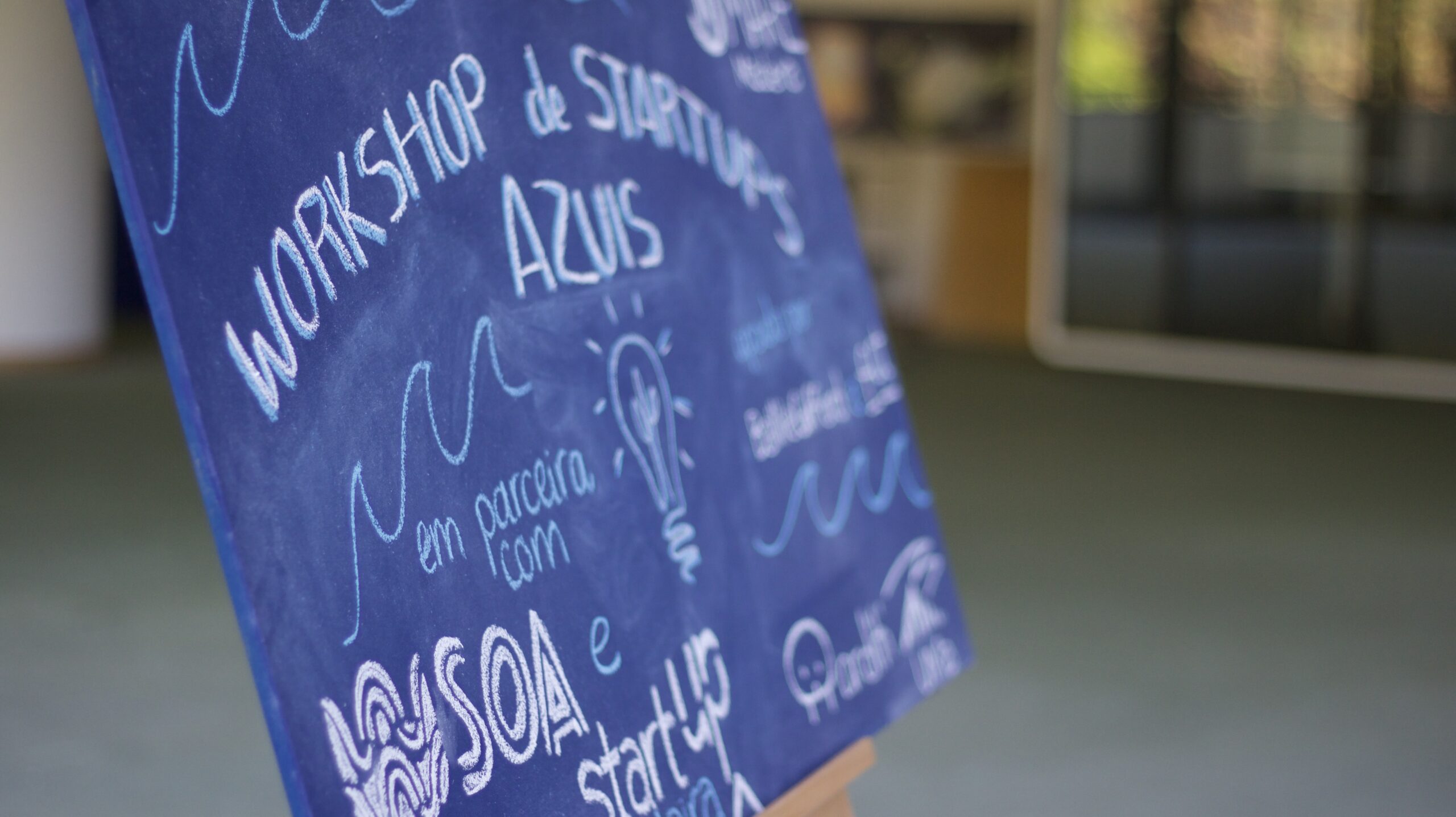
Is there anything better than turning a dream into a reality? After last week, we don’t think so.
Until last week, Academia Azul was just that – a dream. It started as a spark of an idea in late 2022, born of the knowledge that Madeira suffers from an on-going brain-drain in which a lack of opportunities prompts many young, motivated ‘Madeirenses’ to leave this island [1]. Following conversations with our MARE-Madeira Youth Ambassadors in 2023, the urgency for a solution to this problem only grew: our bright, ambitious and high-achieving ambassadors said they wanted to leave Madeira and didn’t see themselves working here in future. Without these young people and others like them – the lifeblood of communities, economies and social progress the world over – Madeira will struggle to keep pace with the rest of the world, Europe, or even Portugal.
Yet at the same time as this gloomy realization was taking place, the number of young Madeirense asking to be involved in our research at MARE-Madeira, curious to learn how to become a scientist and wanting to have a positive impact on their community and ocean was also growing. Hope was not lost.
Instead, it seeded the thought, What if we give young people more tools to create a fulfilling, challenging and financially rewarding career for themselves on Madeira?

Roundtable discussions with our ocean ecopreneurs and a ‘learn-to-pitch’ activity
Economically speaking, and since the commoditization of sugarcane, Madeira has not been notably competitive on the European stage. There are many reasons for this – it’s a small island and a European Outermost Region, isolated from the valuable networks and resources easily accessible to businesses on the continent; manufactured products struggle to be price-competitive due to extra transport costs; and the island’s dominant industries are agriculture and tourism, which don’t offer much (or any) global pricing power.
But Madeira does have one enormous asset that it could make better use of – the ocean. Vast, deep water is easily accessible from Madeira’s coast, and new ocean technologies, startups and thought-leaders looking for a place to call home could do a lot worse than our mild microclimate in the Atlantic. MARE-Madeira’s deep-sea research partners in Germany and Norway have already recognized the cost advantages of operating out of Madeira, and alongside other partners in Madeira and beyond, we have multiple projects underway that are accelerating global knowledge of open-ocean, deep-diving and deep-sea life. The ocean, we believe, could prove Madeira’s enduring competitive advantage, and one that can help the island add significant value to Madeira’s economy, to European research, innovation and education objectives, and to the career prospects for young people on the island.

Presentations from our ocean ecopreneurs, investors and startup support organizations
Academia Azul is our attempt to give young people in Madeira the wherewithal to champion their own sustainable ocean ventures – to both take advantage of and protect Madeira’s greatest natural asset. Through Academia Azul, we aspire to provide vocational skills and inspiration that help the island retain its talent and foster opportunities for economic growth. All we ask in return is that, as an island community, we don’t forget that the ocean and its health is intricately tied to our own wellbeing. Healthy ocean ecosystems are crucial for Madeira to thrive. They are key to Madeira’s fishing and tourism industries, they are a measure of the island’s self-sufficiency, and our ability to replenish and protect these ecosystems will not only dictate our future prosperity, but have a tangible impact on the future of our planet.
Unfortunately, it’s rare in history for a natural asset to be used sustainably and not exploited for short-term financial gain. Can we swim against the current and foster a community and economy around the ocean in a way that leaves it better than we inherited it?
If anything gives us hope that we can, it’s the young people who attended our first Academia Azul Workshop. On 2 and 3 September, we – along with a fantastic line-up of partners, guest speakers (including Micaela Freitas, President of the Social Security Institute of the Regional Government of Madeira, and Carlos Lopes, CEO of StartUp Madeira) and mentors (see the full list here!) – hosted the Blue Startups Workshop for a group of young people from Madeira who applied to take part. Some of our attendees were unemployed, underemployed or unsure what to do next, and all of them brought an amazing amount of energy to the event. Frankly, they knocked our socks off.

Business idea brainstorming
In-between a series of training activities, presentations and roundtable discussions with our ocean ecopreneurs, investors and startup support organizations, we challenged workshop attendees to come up with their own sustainable ocean business ideas. Working in small teams, we only gave them a few hours to come up with an ocean-sustainable product or service, develop a business model and deliver a pitch. In planning the workshop, some of our mentors warned that there wasn’t enough time for all this… but our young attendees proved otherwise. More than that, they did brilliantly. João Rito, founding partner of Portuguese startup SEAentia and one of our workshop mentors, came away from the pitches visibly surprised, saying, “I’ve been to a lot of events like this, and it’s so rare for every team to come up with something.”

Pitches from each of the teams
It was a sentiment our other mentors shared. Nadia Laabs from The Impact Collective said, “I was so impressed by the participants’ pitches at the end of only two days! Not only did they seem to have a real grasp of the blue economy challenges in Madeira, but proposed some well thought out solutions to address them.” And Susanne Wedin-Schildt from Ocean Community agreed, “Their innovative solutions to the blue economy challenges were not only thoughtful but also filled with great potential.”
Which goes to show that the talent is still here; it’s just waiting to be nudged forward.
We hope this workshop added a few more tools to our attendees’ toolboxes, as well as the inspiration and confidence to try something new. New ventures, by definition, require taking the road less traveled. And the road less traveled requires courage to pursue. We can only light up part of the way – just the first few steps – but we look forward to seeing where these young peoples’ paths take them from here.

Brainstorming and pitch prep, with support from our awesome workshop mentors
As for our own journey and the creation of Academia Azul, to date we only have funding to run annual workshops. This funding comes from Baillie Gifford, a Scottish investment management firm that, for the sake of the ocean as well as our community, has generously agreed to help us get started. Which means we’re still seeking the corporations, foundations and eco-conscious souls in Portugal (including Madeira!) who want to help us make Academia Azul a fully-fledged institution and hallmark of an ocean-sustainable future. Think this could be you or your organization? If so, please reach out and help us make a difference.
We are immensely grateful for the support from Baillie Gifford and the FCT for making this workshop possible, as well as the in-kind support from our core event partners, the Sustainable Ocean Alliance and Startup Madeira. We are also indebted to our workshop mentors and invited speakers who brought their insights, experience and enthusiasm to the event and our participants. (Meet them on the event page here!) Finally, thank you to all the young people who took a gamble and applied to take part in something new, trusting us to make good use of your time. We hope you’ve taken something positive from the experience and will use it for the good of Madeira, the ocean and your future. Please stay in touch and we hope to see you at our future activities and workshops!
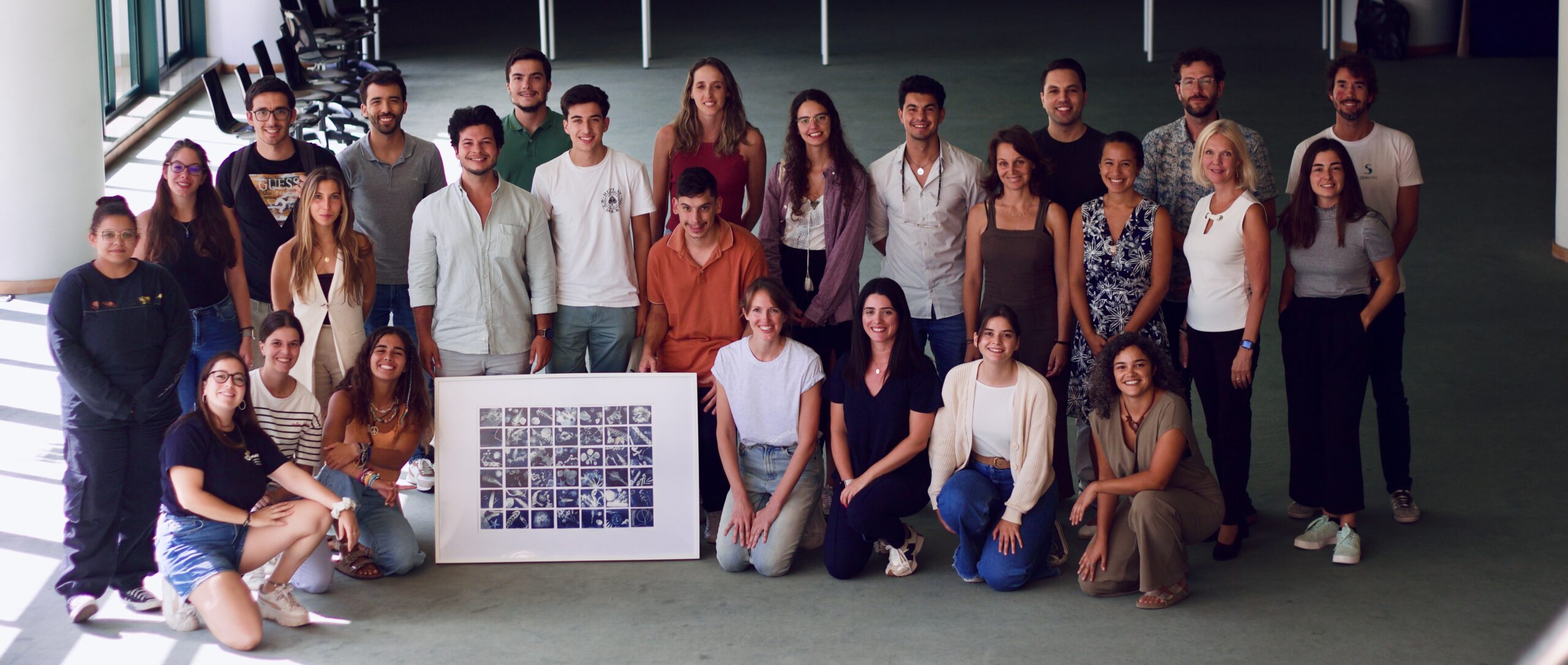
Team photo! (Including our cyanotypes from a cool My Madeira Island-led activity)
1. Governo Regional da Madeira (2014), MADEIRA 2020 Estratégia Regional. Link

